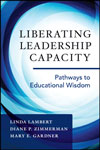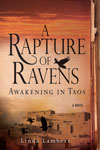Education
« Older EntriesThe Pain of Finishing a Good Book
Saturday, May 13th, 2017
Do you ever slow down dramatically as you near the end of a good book? Perhaps reading a page or two a day as though your daughter is going off to college or a good friend is moving away? Letting go is always hard and letting go of a good book is often a lonely journey, as you may be the only one reading it at the moment. When you finish, a certain sadness sets in and you will remember the characters for years to come.

I recently finished A Gentleman in Moscow by Amor Towles. The book moved slowly, like a piece of ethereal classical music. I took nearly a week to finish it. This is so unlike finishing a trade paperback mystery when you just want to know what happens. Recently, I finished Chernow’s Alexander Hamilton and had a similar, but different, experience. When he was shot by Burr, I was quite upset. My husband said, “Was that a surprise??” Well, no. I knew the history, but this time I lived it.
If you are a member of a good book club, the conversation can be therapeutic. It also helps to write in a journal or reflect in meditation about what you learned. For the gift of a good book is that we learn and grow…cognitively, emotionally and perhaps even physically. In anthropology, it is called “liminality,” that time when we separate ourselves from current reality, shed traditional roles, imagination soars and return transformed. We are never quite the same again.
Posted in Education, Fiction, imagination, non-fiction, writing | No Comments » | Leave a Comment
Liberating Leadership Capacity in the age of Trumpism
Saturday, November 26th, 2016
This is the opening paragraph of my next text, written with Diane Zimmerman and Mary Gardner, and entitled, Liberating Leadership Capacity: Pathways toward Educational Wisdom. How timely in the days of Trumpism. We are confident that the lessons in this text democratize schools and societies. Is there still time??
“Ask a thousand random individuals about one of the most persistent problems in schools, organizations, and countries today and you are likely to hear: leadership. Yet there is little understanding about this elusive concept. Many hold a belief that in times of distress people often look for someone to be in control, a directive leader who can tell them what to do. School boards seek out dominant superintendents who can “take charge”; schools are assigned principals to guide or push teachers into current reforms and fads. We challenge the contention that directive leadership is justified. Schools and organizations are rich with talented, thoughtful individuals who, when given the opportunity to work in open, engaging, and democratic cultures, consistently emerge as leaders and innovators. Adults learn; children learn. Creating these learning, leading schools and organizations is the mission of this text, Liberating Leadership Capacity: Pathways toward Educational Wisdom.”
With the election of Trump, our country is turning away from democracy. Frightening times. A failure of history, culture and education. An awakening of painful ramifications. Yet, this time we know to protect our neighbors and also turn to strangers.
Next: Leadership Capacity is an essential antidote in cultures where peoples feel lost, alone, forsaken.
Tags: new text from Teachers College Press
Posted in Books Inc., Constructivist Leadership, Education, Leadership, Leadership Capacity | No Comments » | Leave a Comment
Liberating Leadership Capacity-Released!
Sunday, April 3rd, 2016
My colleagues and I will be signing our new text at the American Educational
Research Association in Washington, D. C., Sunday, April 10. The subtitle, Pathways
to Educational Wisdom captures those notions about leadership that transcend
usual practice to answer this question: What insights and epiphanies lead us
beyond the horizon of ordinary into the realm of wisdom?
Linda
Posted in Book Tour, Constructivist Leadership, creativity, Education, imagination, Leadership, Leadership Capacity, non-fiction | No Comments » | Leave a Comment
Two Weeks from Today: The Release of a New Leadership Book
Thursday, March 17th, 2016
Hi and happy St. Patrick’s Day,
On April 1, Liberating Leadership Capacity: Pathways to Educational Wisdom will be released. Published by Teachers College Press at Columbia University, and co-authored with Diane Zimmerman and Mary Gardner, this book is my 8th book on leadership. This venture into leadership has been a thrilling journey as it has afforded an opportunity to combine and reposition my thoughts on Constructivist Leadership and Leadership Capacity. Andy Hargreaves has written the Foreword.
On April 10 at 12:30 at the AERA booth # 401, Convention Center, Washington D. C., the authors will sign the book that can be purchased at 20% off. Whether you are working in the field of leadership formally, or curious about the direction of the field, you will find this book full of stories, complexity science, international successes and conclusions on the emergence of wisdom.
Coming tomorrow: Creative Confluence.

Posted in Book Tour, Education, Leadership, writing | No Comments » | Leave a Comment
The Cairo Codex wins 3 awards
Wednesday, May 7th, 2014
The Cairo Codex, has now won three prestigious 2014 awards: the Silver Nautilus Award for fiction, the Bronze International Independent Publishers Award for historical fiction, and was a finalist in the USA Best Books Award competition. The Cairo Codex, a riveting novel of suspense, politics, religion, and romance is set in Egypt during the years 2 and 2007. Anthropologist Justine Jenner discovers the diary of Mary of Nazareth, the mother of Jesus, in an ancient crypt during a major earthquake. She barely survives with the codex and her life, both threatened by the Muslim Brotherhood.
I became enthralled with Egypt as a young girl when my mother enchanted me with tales of her own alleged reincarnation from Egyptian royalty. In 1989, I became a State Department Envoy to Egypt and began two decades of exploration of its culture. I’ve written several internationally-recognized books in the field of leadership, none as fun as fiction! Before fiction, I was an administrator, history instructor, international consultant, and am professor emeritus at California State University, East Bay.
The second novel in The Justine Trilogy, The Italian Letters, will be released this fall (I know, I know, I said July!) and the third novel, A Rapture of Ravens, in early 2015.
Tags: awards, codex, Egypt, fiction, Jesus, literary, Muslim, politics, trilogy, Virgin Mary, writing
Posted in creativity, Education, Egypt, Fiction, history, imagination, Leadership, Nautilus Award, trilogy, writing | No Comments » | Leave a Comment
The Personal Meaning of John F. Kennedy
Friday, November 22nd, 2013
In the fall of 1959, I was an officer in the Young Democrats and a student at Pittsburg State College in Kansas, when the radiant, youthful man sprinted down the stairs of a small plane at the local airport. The crowd split in half as John F. Kennedy moved confidently into our midst, his eyes scanning the crowd, resting momentarily on each student and local politician. As our eyes met, I felt the heat of recognition. He spoke for less than five minutes, answered a few questions, turned—then he was gone.
Those mesmerizing moments were a turning point in my life. Since I had marched in a campaign for a Democratic governor when I was in the third grade, I can’t say it was the moment I became politically conscious, but it was the instant in which I felt and deeply understood the role of government in a great nation and my responsibility to it. His confidence was contagious, his vision compelling. I, with others, watched as his vision manifested itself in the Peace Corps, the space program (with a moon landing in 1969), a nuclear test ban treaty, an end to segregation in interstate travel and federal housing (by executive order), creating the Medal of Freedom, and bringing the arts into the White House. In October 1962, the world watched breathlessly as he avoided a nuclear tragedy in the Cuban Missile Crisis. His actions captured the essence of his vision and set forth the path ahead. –then he was gone.
With Kennedy’s assassination, on this day 50 years ago, a great sadness appended itself to my being. I felt the fragility of life and history, the naïveté of “happily ever after.”
Linda
Tags: anniversary, assassination, history, Kennedy, politics, vision
Posted in Education, history, Leadership | No Comments » | Leave a Comment
Arriving Home…Cultural Re-entry
Monday, November 18th, 2013
I remember arriving home in the early nineties in California after living in Cairo for two years. It is very expensive and complicated in the U.S: utility deposits, insurance, relationships. The most difficult part was moving from the unfamiliar, the exotic, to the familiar, the mundane. In Cairo, the air bristled with sensuality, tension, unknown dangers. In a foreign culture, one’s identity is as one would wish it.
Coming home was culture shock in reverse. I was depressed—and stayed that way for the better part of a year. Until I returned to Cairo the next spring.
Returning home from Taos this fall has some of the same elements. I realize this time that an essential part of the intrigue of another culture is history. Ten thousand years of history in Egypt, 500 years of history in Taos.
No doubt, this is why I enjoy writing historical fiction so much…it anchors me in the ethereal, the unfamiliar, creating the necessity of building new theories from history. Placing my characters in context.
Yet, as I write this post, I am staring up into our redwood forest here in The Sea Ranch. Thousands of years of natural history. A blend all worlds. Snap out of it, Linda.
Posted in Arab press, Book Tour, Education, Egypt, Fiction, Taos, Travel | No Comments » | Leave a Comment
The Justine Trilogy: Preparing for the Friends of D.H. Lawrence Book Fair
Sunday, October 13th, 2013
On September 19, The Friends of D.H. Lawrence is hosting a book fair at the Mabel Dodge Luhan house here in Taos. In preparation, I have summarized the relationship among the novels in The Justine Trilogy.
The Cairo Codex explores the bold themes of dominant human desires, fundamentalism, sexual awakening, feminism, and the pressures that lead to revolution. Egypt is a powder keg ripe for revolution, sparked by a discovery so shocking that religious and political forces converge to prevent its revelation.
Two days after arriving in Cairo, Justine feels compelled to revisit an ancient crypt, once thought to have been the home of the Holy Family. While in the crypt, an earthquake nearly buries her and she unearths a centuries-old codex. In the wake of its stunning disclosures, political and religious violence rocks the region and the Muslim Brotherhood prepares to take over the country.
Etruscan Evenings is a provocative novel of romance, culture, and history: the resolution of the meaning and ultimate possession of the diary of the Virgin Mary; finding of letters from author D. H. Lawrence to Justine’s great grandmother, Isabella; and the discovery of a primeval Etruscan tomb revealing the origin, journeys, and identity of this astonishing civilization that pre-dated the Romans. Lawrence’s Etruscan Places informs the search to understand these ancient peoples and the politics surrounding their identity. Tensions arise when the Vatican tries to subvert discoveries related to Mary of Nazareth. Justine heads for Taos, New Mexico.
A Rapture of Ravens: Awakening in Taos. Justine comes to Taos seeking the essence of D.H. Lawrence and her own spirituality. She stumbles into the conflict and hunt for the migration patterns of the peoples from the northwest. Here, she finds the Red Willow people, archeologists, Lawrence aficionados, and artists who draw her into the riveting blend of cultures that is Taos. She mentors a troubled young Indian girl, finding a sense of wholeness in that relationship. Lawrence discoveries include the spirituality he found on Lobos Mountain, his lost will, and letters that more fully explain his mysterious journey. After her Egyptian lover, Amir, joins her at Christmas, he returns to Cairo to lead the revolution of January 2011. A tragedy on Bloody Wednesday in Egypt is so shocking that Justine is thrown into turmoil and peril.
For more information: Linda Lambert, Ed.D., linlambert@mcn.org; www.lambertleadership.org; 707-328-4645.
Posted in Book Tour, Education, Egypt, Fiction, Italy, Taos, Travel | No Comments » | Leave a Comment





 A sizzling new novel set in Taos, New Mexico. The third in the Justine Trilogy, preceded by the award-winning, The Cairo Codex and The Italian Letters. Buy it at your local independent bookstore,
A sizzling new novel set in Taos, New Mexico. The third in the Justine Trilogy, preceded by the award-winning, The Cairo Codex and The Italian Letters. Buy it at your local independent bookstore, 
